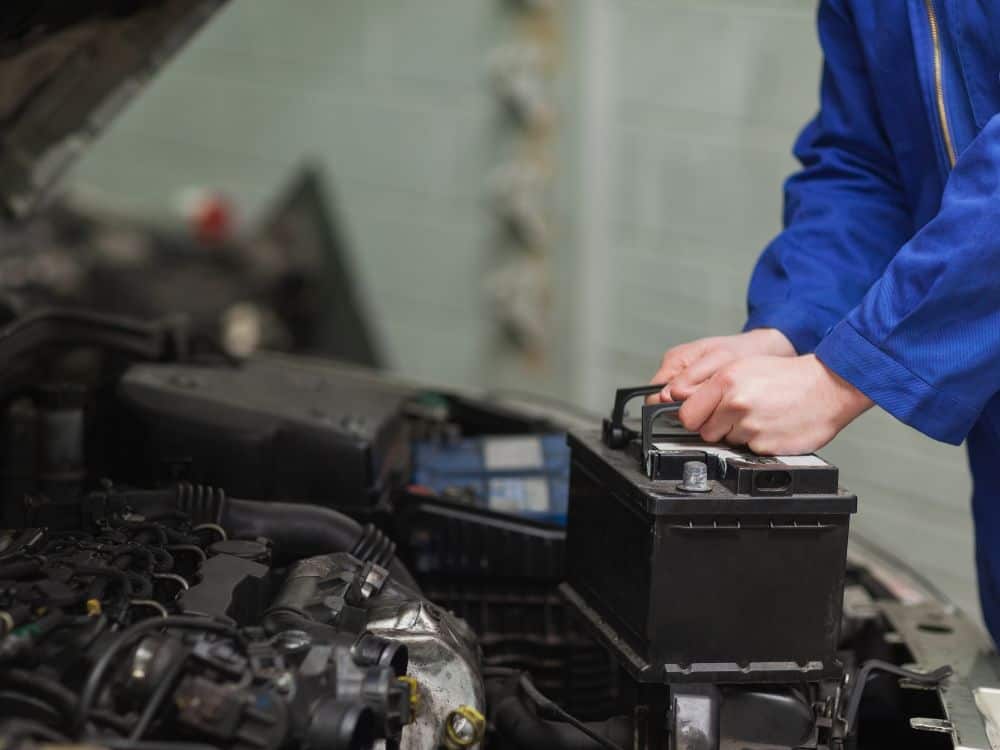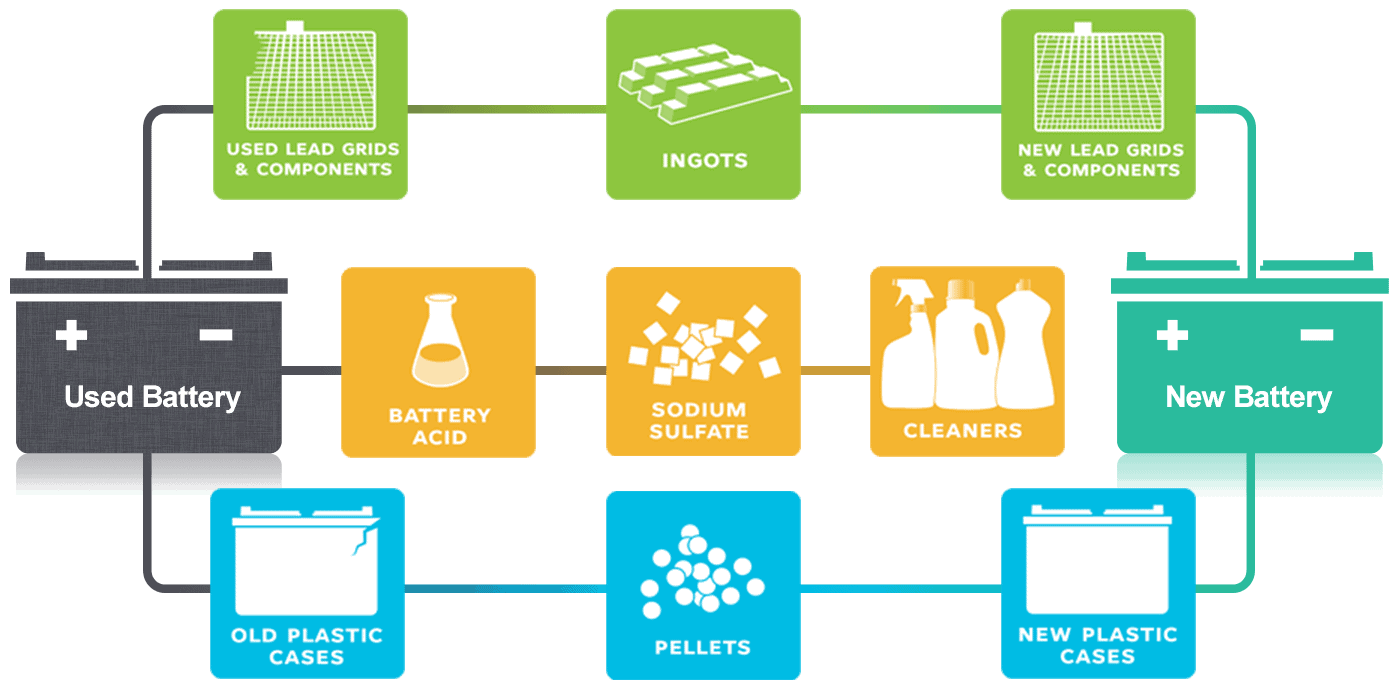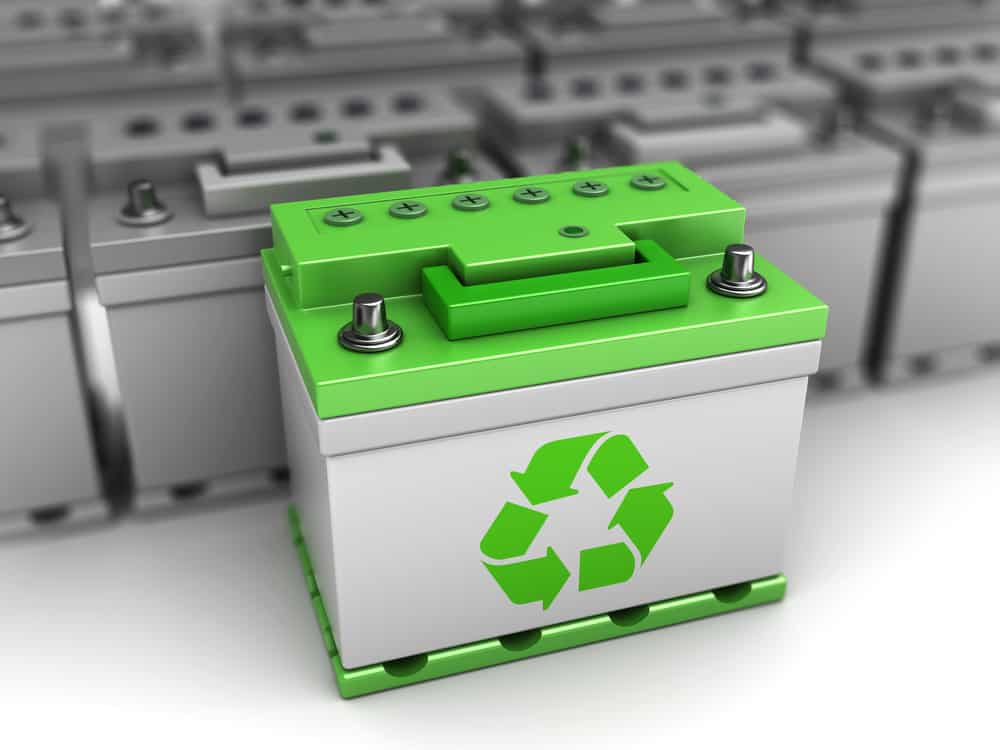Are you thinking of replacing your worn-out battery with a new one soon? You’re probably thinking, “where can I dispose of a car battery?”
An average automotive battery possesses a lifespan of anywhere between three to four years only. If your battery is showing signs of wear and tear, it will only be a matter of time before it reaches its end.
Now, a new battery would get your car working again, but how will you properly dispose of your old battery? Is it safe to store an old automotive battery in the garage?
Read on to learn about the proper way of disposing of car batteries.
Table of Contents
Where to Dispose Car Batteries?
There are a few places where you can safely leave your scrap battery for recycling.
1. Find a Drop-Off Location Near You
While car batteries can be recycled, you can’t just throw them into your municipal recycling bin. Some municipalities designate a specific area for residents to dump hazardous materials of any kind.
So, search for one in your area and ditch your scrap car battery there guilt-free. This has to be the quickest and easiest method but unfortunately, you will not reap some cash.
2. Visit a Metal Recycling Establishment
Your second option is to find firms that handle metal recycling and sell your old batteries there. Functioning or not, automotive batteries can be worth a lot depending on their metal content.
3. Head Straight to Your Retailer
For most individuals, the best option is to turn in your old car battery for a core charge refund. Some retailers are even happy to exchange a gift card for every old battery you drop off, ranging from lead to lithium.
So if you have plenty of old vehicle batteries lounging in the garage or among the weeds in your backyard, it is high time you exchange them for some cash rewards.
Can You Throw Away Batteries In the Trash?

No! By law, you should not dispose of engine batteries alongside common household wastes.
Lead acid batteries that end up in landfills leak eventually, thus contaminating the soil and groundwater. The chemicals may also seep into waterways, and in consequence, endanger marine life and impact the health of local residents. For one, lead poisoning causes mental and behavioral problems in children.
Likewise, you should not let old car batteries sit in a corner of your garage. The water inside the batteries expands in cold climates and may break the casing when it starts to thaw. The fumes are dangerous and the fluids can cause serious burns if they come in contact with your skin.
Can You Recycle Old Car Batteries?
Yes! Old car batteries are, in fact, the most recycled consumer product. Interestingly enough, almost 100% of a lead acid battery can be salvaged and reused to make new batteries. For this reason, it comes as no surprise why battery makers actually want them back!
When buying a new battery, the retailer would usually ask you to pay for a core charge added to the price of the unit. Also called core deposit, it will be refunded to you when you bring your old battery as you purchase a new one. To put it simply, it is comparable to a bottle deposit.
Some consumers disapprove of paying core charges, but they exist to promote battery recycling. Apparently, many people are still unaware of the health and safety risks involved with improper disposal and stashing of old batteries.
How Car Batteries Are Recycled

Here’s what happens after you drop off your spent battery at a recycling facility.
Battery Breakdown and Separation
A hammer mill cracks the battery open. The sulfuric acid will be drained out and sent to a hazardous waste facility.
The remaining chunks are placed in a vat filled with liquid. The lead will fall to the bottom due to its weight and since plastic is buoyant, the broken parts will stay afloat.
These materials need to be separated as they undergo different recycling processes.
Plastic Recycling
The plastic parts that have been collected shall be washed and dried before they are melted down. The liquified plastic pieces are fed to an extruder where they come out as tiny pellets and these plastic pellets will be used to create new usable forms.
Lead Recycling
The lead taken from the broken car battery is shipped to a smelt mill where it is melted down and poured into ingot molds. Then the hardened ingots will be sent off to battery manufacturers.
How Do You Remove and Transport Batteries Safely?
Now that you know where to dispose of your car battery, what you need to do now is to make sure you safely remove and transport your old one. Here are a few suggestions:
- Wear protective gloves and safety glasses as there might be potential leaks.
- Always disconnect the negative terminal first. The wrench should never touch both terminals. Seek professional help if you are unsure which terminal is positive or negative.
- Your battery might appear “dead,” but you can still receive a nasty shock from its low voltage. Don’t be lax.
- Check to ensure your battery is free from surface damage.
- Store your old battery inside a heavy-duty, non-conductive container to prevent leakage and staining.
- Always transport your battery standing upright. When driving, you will want to make sure it doesn’t get jostled or tipped.
Conclusion
Due to the hazardous content inside car batteries, you cannot discard them alongside your household garbage. Typical recycling also doesn’t apply. You’ll need to take your scrap battery to a hazardous waste collection point, which requires special handling.
You may exchange it for a few bucks at a metal recycling establishment. Better yet, pay a core charge when you buy a new battery so that when it’s time to replace it, you can be sure that your old battery is recycled.
If you have several old batteries inside your garage, it’s high time you get rid of them. Many auto parts stores pay good money for the lead content of old, non-working batteries.
